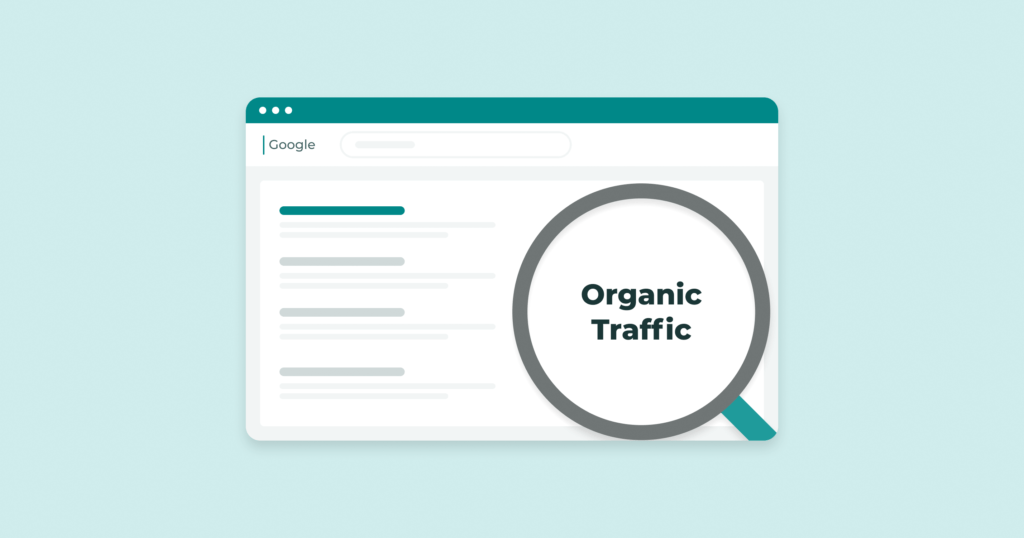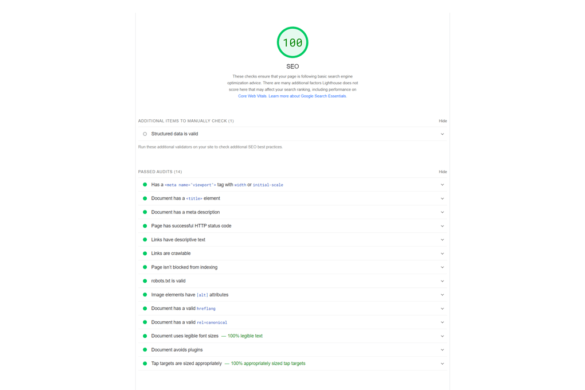Table of Contents
For several months, Sarah has been working nonstop to build her new website and online store for her handcrafted goods company. She eagerly launches her website in anticipation of connecting with potential clients who might be interested in buying her one-of-a-kind creations. But after a few months of waiting idly, Sarah discovers that her website isn’t getting as much traffic as she had planned. What actions then can Sarah take to draw in more clients?
Learning how to improve organic traffic is the best strategy Sarah can use to increase leads and revenue. Sarah can improve her online store’s performance by learning how to get more traffic. Thankfully, we’ve compiled the crucial data to teach you how to increase organic traffic to your website and prosper in 2024—for both Sarah and you.
To boost organic traffic to your website, look at these 10 tips. Get the most recent marketing advice and strategies that can help you boost organic traffic by subscribing to Revenue Weekly and continuing to read this article!
10 tips on how to increase organic traffic
1. Optimize for Humans, Not Just Search Engines
One of the most frequent mistakes made by businesses looking to increase organic traffic to their websites is to overlook user-centric strategies. This oversight will have serious consequences in 2024’s digital environment. Although many businesses place a high priority on optimizing their websites to satisfy search engine requirements, the truth is that search engines largely rely on user activity to determine rankings.
Well-known search engines like Google look at metrics like dwell time and page navigation because they are measures of relevance and user satisfaction. Long stays on a website or thorough page browsing indicate that users think your content is important. On the other hand, if your website is not optimized for your target audience, bounce rates will increase, which will lower your search engine rankings and organic traffic.
It is important to give top priority to creating content that appeals to actual readers in order to avoid this situation. Using language and design that appeals to your target audience increases user interaction, which in turn supports search engine optimization (SEO) efforts and rankings. Consequently, this strategy makes it easier for the amount of organic traffic to your website to increase.
2. Create a Blog
Start a blog to increase your traffic from organic searches. Blogging is incredibly beneficial to your business because it allows you to interact with your target audience, improves organic traffic, and establishes the authority and credibility of your website.
Blogging enables you to share insightful information in a way that appeals to the interests of your audience. They find your website and read through your content as they use relevant keywords to search for relevant information. As a result, more people visit your page because you provide them with the insightful information they are looking for.
What kind of blogs are you able to create then? You can make a variety of blogs, such as:
- Educational blogs
- Tutorial blogs and more
Whichever blog format you decide on, the most important thing is to provide readers with relevant and helpful content. Analyzing the websites that are presently ranking highly for the topic and keywords you have selected is helpful because it can provide ideas for the kinds of content you should include in your blog posts.
3. Publish content regularly
The next step after starting a blog in your selected niche is to create a schedule or content calendar for regular posting. In the world of blogging, having a consistent flow of content is essential because it enables you to continuously drive organic traffic to your website.
Creating a blog content calendar gives your page organization and entices users to return often for new posts. Maintaining consistency not only builds a following of devoted readers but also increases the likelihood that site visitors will become committed customers. Ultimately, you can guarantee a consistent flow of worthwhile organic traffic to your website by sticking to a regular publishing schedule.
4. Optimize content for the featured snippet
Content optimization for the featured snippet is a must if you want to increase the amount of organic traffic that comes to your website. With its prominent placement at the top of search results, the featured snippet provides users with instant answers to their questions.
Why is getting the featured snippet so important in terms of increasing organic traffic? Think about this: 34% of clicks are usually directed toward the top organic search result. Nonetheless, the click-through rate (CTR) for the top spot drops by 8% when a featured snippet is present. Therefore, the listing receives more clicks when it has a featured snippet.
You may be wondering now, “How can I get this featured snippet position.” Though there’s no foolproof way to get it, there are ways to improve your chances of ranking there. Below are the two main methods:
- Using numbered or bulleted lists to organize content: Making good use of lists will increase your chances of being selected for the featured snippet. Lists should be thoughtfully incorporated into your page when appropriate, as opposed to being overused. If you were answering a question like “how to repair your credit,” for example, readers would greatly benefit from a brief list of suggestions.
- Providing direct, clear responses: Another strategy is to provide answers that are clear and don’t require extra explanation. Consider the highlighted excerpt for the question “How to fix your credit?” The answer that is given directly answers the question by addressing important factors like the amount of space that is available, the size of the silverware basket, and the number of shelves.

5. Use relevant keywords on your page
Considering new tactics to increase the organic traffic to your website? This creative way to increase your site visits is to include relevant keywords all over your platform. Keywords serve as crucial markers that direct interested parties to your online presence. The secret is to choose the right keywords to target so that your content speaks to the most interested and potential audience.
Let’s say you own a specialty coffee business. It would be ineffective to try to rank for terms like “smartphone reviews” or “fashion accessories”. These keywords may drive a lot of traffic, but they are not likely to draw customers who are interested in your coffee products.
Instead, focus on pertinent keywords like “locally roasted beans” or “artisanal coffee blends.” Your content will be more likely to draw relevant traffic if it is matched with relevant search queries. Finding relevant keywords entails:
- Engaging in comprehensive keyword research utilizing specialized tools.
- Focusing on terms relevant to your niche.
- Prioritizing long-tail keywords (comprising three or more words).
Selecting the appropriate keywords allows you to increase organic traffic by bringing more clicks and drawing in visitors who are interested in your website.
6. Look for fresh keywords to cover gaps
Beyond its initial implementation, keyword optimization is a continuous process. After you have posted blog entries and other content on your website, you must conduct ongoing keyword research. By doing this, you can make sure that your keyword strategy is always improving and that it is in line with the terms and phrases that your target audience uses to find your content.
Seek out keywords with lower competition levels to enhance your chances of securing top rankings. This strategic approach not only positions you ahead of competitors but also compels them to intensify their efforts to compete with your site’s established authority in specific keywords.
identifying gaps in your content is made easier by looking into new keywords. You can significantly increase organic traffic to your website by filling in these gaps with relevant, helpful content. The following simple techniques can be used to identify keyword gaps:
- Analyze competitor keywords.
- Utilize tools such as Ahrefs or Google Search Console to monitor keyword metrics.
Making constant improvements to your keyword strategy and content offerings in light of new keyword insights will increase the visibility and relevance of your website to your target audience.
7. Focus on the FAQ and “People Also Ask” sections
A good way to increase the amount of organic traffic to your website is to concentrate on answering user questions directly in the “People Also Ask” and FAQ sections. You can improve the ranking potential of your website by adding FAQ sections to your pages. This strategy gives you an additional way to focus on relevant keywords and address user inquiries that may not have been addressed in your previous content.
FAQ sections help you improve the content of your page and increase organic traffic by answering frequently asked questions from users. They are essential to effectively meeting user needs and search engine optimizing your website.
8. Write an appealing meta description and title tag
The title tag and meta description are the first things people see when they search for content online and find your listing in the search results. If you ignore these components’ potential, you will be losing out on a great chance to improve the flow of organic traffic to your website.

The meta description and title tag are important elements that influence whether or not a user chooses to click on your listing. Effectively optimizing these elements will greatly raise the possibility that more people will visit your page, increasing organic traffic.
- For your title tag: Try to limit its length to no more than 60 characters. Prioritize starting the tag with your main keyword to indicate relevance to users and search engines alike. Create a captivating and interesting title tag to encourage visitors to click through to your page.
- Regarding the meta description: make sure it stays brief—ideally, it should be less than 160 characters. Make sure the description gives readers a clear idea of what to expect when they visit your page by naturally including your main keyword.
To put it another way, think of your website’s title tag and meta description as its storefront window in the huge online marketplace. A strong title tag and meta description tempt readers to explore your online content, much like an eye-catching display draws in customers to a physical store. In contrast, prospective consumers might walk by your storefront without giving it a second look if it is unattractive or fails to adequately portray what is inside. Thus, putting in time and effort to optimize these components is similar to improving the curb appeal of your storefront, which will eventually increase foot traffic and possible conversions.
9. Carry out an audit for technical SEO
Technical SEO makes your website easier for search engine crawlers to navigate, which improves indexing and comprehension. It is essential for increasing organic traffic because it concentrates on improving user experience and fixing any technical issues that may cause users to become frustrated.
Start your technical SEO journey by conducting a thorough site audit. With this assessment, you can evaluate important backend elements and identify technical issues that need to be fixed, such as:
- Page loading speed
- Indexing status
- Link statuses
- Sitemap errors
- Structured data implementation
- HTTPS status
Additional angles to explore could include:
- Comparative Analysis: Emphasize how technical SEO sets your website apart from those of your rivals. Talk about how putting technical SEO tactics into practice can give your website a competitive edge by enhancing its performance and visibility in search engine results pages (SERPs).
- User Satisfaction: Stress how user retention and satisfaction are directly impacted by technical SEO. Technical factors like page speed and mobile responsiveness can be optimized to give users a faster, more pleasurable browsing experience, which increases engagement and conversions.
- Algorithm Updates: Talk about how being up to date on search engine algorithm changes is essential for technical SEO that works. Describe how user experience and relevance are given priority by search engine algorithms, requiring constant modifications to technical SEO practices to preserve or raise search rankings.
- Mobile Optimization: Explore the significance of mobile optimization in technical SEO. With the increasing prevalence of mobile browsing, optimizing your site for mobile devices is essential for catering to a diverse audience and improving overall site performance and accessibility.
- Local SEO Integration: Discuss the intersection of technical SEO and local search optimization. Explain how technical SEO practices such as schema markup and local business listings enhance your site’s visibility in local search results, driving foot traffic and conversions for brick-and-mortar businesses.
10. Adopt best practices for technical SEO
You can improve your website’s technical SEO condition even more after your technical SEO assessment is complete by implementing some suggested practices to keep it operating at peak efficiency. The following technical SEO best practices can improve both user and search engine appeal for your website:
- Switch from HTTP to HTTPS for increased security.
- Make sure that mobile devices can access your website.
- Give Google’s Core Web Vitals optimization top priority if you want to improve user experience.
- Improve page speeds
- Find any instances of duplicate content and fix them.
- Find any broken hyperlinks and fix them.
- Perform technical SEO audits regularly to quickly resolve any new problems.
Lastly, Now is the time to implement these suggestions if you want to see an increase in organic traffic to your website. Lacking the time to focus on increasing your website’s organic traffic? SteveAyo is prepared to assist. With more than ten years of experience, we assist our clients in boosting natural traffic to their websites. We have generated more than a million leads for our clients over the last five years. We are skilled at attracting quality traffic that generates leads and revenue for our customers. Do you want to know more? Contact us online or give us a call at +255 783 957 836 to talk with a strategist about how our SEO services can increase your website’s organic traffic!
FAQs
How long does it take to see results from organic traffic strategies?
Results may vary depending on various factors such as website authority, competition, and the effectiveness of your strategies. Generally, significant improvements may take several months to materialize.
Why is user experience important for organic traffic?
User experience directly impacts factors such as bounce rate, dwell time, and engagement, all of which are critical metrics for search engine rankings.
What role do meta tags and descriptions play in SEO?
Meta tags and descriptions help search engines understand the content of your pages and influence click-through rates from search results.
Is technical SEO necessary for all websites?
Yes, technical SEO ensures that your website is accessible, indexable, and optimized for search engine crawlers, which is essential for organic visibility.







Add your first comment to this post